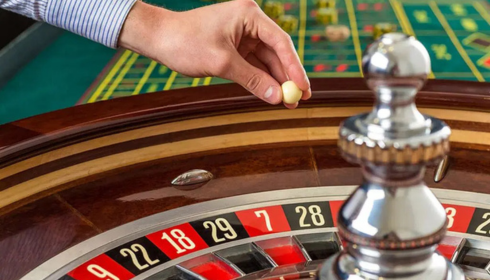Chasing Losses: The Fast Track to Financial and Emotional Ruin

For many gamblers, the temptation to recover lost money by placing more bets can be overwhelming. This behaviour, known as “chasing losses,” is a common and dangerous pitfall that can rapidly spiral out of control. Whether you’re betting casually or engaging on platforms like Reddy Anna Official, understanding why chasing losses almost always ends badly is crucial for safeguarding both your finances and mental well-being.
The Psychology Behind Chasing Losses
At the heart of chasing losses lies an emotional reaction to defeat. Losing a bet triggers feelings of frustration, disappointment, and even desperation. Rather than accepting the loss and walking away, many gamblers convince themselves that placing a bigger bet will recoup their money quickly. This is often reinforced by loss aversion bias—the human tendency to feel the pain of losing more intensely than the joy of winning.
Unfortunately, this is exactly the kind of mindset that betting platforms, both offline and online, rely on. The sheer variety of sports betting markets, like those found through the Reddy Anna Sports ID page, can tempt punters into rapid-fire betting to recover earlier defeats.
Why It Fails: The Math Doesn’t Lie
One of the biggest misconceptions gamblers have is the belief in “being due” a win. The reality, however, is starkly different. Each bet is independent, and losses don’t make a win any more likely. In fact, escalating your bets in frustration often leads to larger stakes on lower-quality selections, reducing the probability of a favourable outcome.
Moreover, increasing bet sizes to cover past losses quickly drains your bankroll. Without proper bankroll management—a strategy where you wager only a small, pre-set percentage of your total funds—you can easily exhaust your resources. As losses accumulate, the emotional toll also deepens, leading to irrational decision-making and, in extreme cases, compulsive gambling.
The Vicious Cycle and Its Consequences
Chasing losses is not just a financial mistake; it’s an emotional trap. The more you lose, the more desperate you become to win back what was lost. This cycle can lead to serious consequences:
- Financial hardship: Debts, drained savings, and even borrowing money.
- Emotional distress: Anxiety, depression, and relationship strain.
- Compulsive gambling: Loss of control over your betting habits.
Recognising these dangers early is key. If you’re concerned about your betting habits, don’t hesitate to seek support or use responsible gambling features offered by reputable platforms. Platforms like ours encourage safe practices and provide resources—if you need to talk, contact us for guidance.
A Smarter Approach: Discipline and Limits
The most effective way to avoid the dangers of chasing losses is to adopt a disciplined, long-term betting strategy. Accept losses as a natural part of gambling, and never stake more than you can afford to lose. Setting time limits and deposit caps can also help manage your habits effectively.
Betting should be approached like an investment—calculated, patient, and with clear limits. As with all betting advice shared on Reddy Anna Official, we advocate for strategies that prioritise long-term sustainability over short-term desperation.
Conclusion
Chasing losses is a slippery slope that rarely ends well. It is driven by emotion, undermines rational decision-making, and can cause severe financial and emotional harm. By betting responsibly, setting limits, and recognising when to walk away, punters can protect both their bankroll and their peace of mind.
Leave a Reply
You must be logged in to post a comment.




Leave a Comment